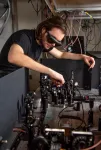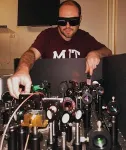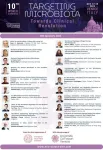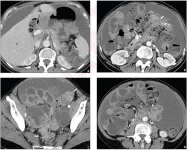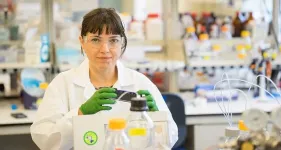Controlling quantum randomness from the vacuum
Groundbreaking study demonstrates control over quantum fluctuations, unlocking potential for probabilistic computing and ultra-precise field sensing
2023-07-13
(Press-News.org) A team of researchers from the Massachusetts Institute of Technology has achieved a milestone in quantum technologies, demonstrating for the first time the control of quantum randomness.
The team of researchers focused on a unique feature of quantum physics known as "vacuum fluctuations". You might think of a vacuum as a completely empty space without matter or light. However, in the quantum world, even this "empty" space experiences fluctuations or changes. Imagine a calm sea that suddenly gets waves - that's similar to what happens in a vacuum at the quantum level. Previously, these fluctuations have allowed scientists to generate random numbers. They're also responsible for many fascinating phenomena that quantum scientists have discovered over the past hundred years.
The findings are described today in the journal Science, in a paper lead by MIT postdoctoral associates Charles Roques-Carmes and Yannick Salamin; MIT professors Marin Soljačić and John Joannopoulos; and colleagues.
Conventionally, computers function in a deterministic manner, executing step-by-step instructions that follow a set ofpredefined rules and algorithms. In this paradigm, if you run the same operation multiple times, you always get the exact same outcome. This deterministic approach has powered our digital age, but it has its limitations, especially when it comes to simulating the physical world or optimizing complex systems, tasks that often involve vast amounts of uncertainty and randomness.
This is where the concept of probabilistic computing comes into play. Probabilistic computing systems leverage theintrinsic randomness of certain processes to perform computations. They don't just provide a single "right" answer, but rather a range of possible outcomes each with its associated probability. This inherently makes them well-suited tosimulate physical phenomena and tackle optimization problems where multiple solutions could exist and where exploration of various possibilities can lead to a better solution.
However, the practical implementation of probabilistic computing has been hampered historically by a significant obstacle: the lack of control over the probability distributions associated with quantum randomness. But the researchconducted by the MIT team has shed light on a possible solution.
Specifically, the researchers have shown that injecting a weak laser "bias" into an optical parametric oscillator, anoptical system that naturally generates random numbers, can serve as a controllable source of "biased" quantum randomness.
"Despite extensive study of these quantum systems, the influence of a very weak bias field was unexplored," remarks Charles Roques-Carmes, a researcher in the study. "Our discovery of controllable quantum randomness not onlyallows us to revisit decades-old concepts in quantum optics but also opens up potential in probabilistic computing and ultra-precise field sensing."
The team has successfully exhibited the ability to manipulate the probabilities associated with the output states of anoptical parametric oscillator, thereby creating the first-ever controllable photonic probabilistic bit (p-bit). Additionally, thesystem has shown sensitivity to the temporal oscillations of bias field pulses, even far below the single photon level.
Yannick Salamin, another team member, remarks, "Our photonic p-bit generation system currently allows for the production of 10,000 bits per second, each of which can follow an arbitrary binomial distribution. We expect that thistechnology will evolve in the next few years, leading to higher-rate photonic p-bits and a broader range of applications."
Professor Marin Soljačić from MIT emphasizes the broader implications of the work: "By making the vacuum fluctuations a controllable element, we are pushing the boundaries of what's possible in quantum-enhanced probabilistic computing. The prospect of simulating complex dynamics in areas such as combinatorial optimization and lattice quantum chromodynamics simulations is very exciting."
END
ELSE PRESS RELEASES FROM THIS DATE:
2023-07-13
Researchers at North Carolina State University used a CRISPR gene-editing system to breed poplar trees with reduced levels of lignin, the major barrier to sustainable production of wood fibers, while improving their wood properties. The findings – published in the journal Science – hold promise to make fiber production for everything from paper to diapers greener, cheaper and more efficient.
Led by NC State CRISPR pioneer Rodolphe Barrangou and tree geneticist Jack Wang, a team of researchers used predictive modeling to set goals of lowering lignin levels, increasing the carbohydrate to lignin (C/L) ratio, and increasing the ratio of two important ...
2023-07-13
In this special issue of Science, nine pieces – including Perspectives, Policy Forums, and Reviews – highlight recent advancements in artificial intelligence (AI) technologies and how they’re being used to answer novel questions in topics ranging from human health to animal behavior. However, the recent widespread adoption of AI in these areas is not without unique ethical concerns and policy challenges. “By looking to the forefront of how AI is being used in science and society, many grand challenges and benefits appear,” writes Gemma Alderton, deputy editor at Science.
AI-predicted ...
2023-07-13
Despite the importance of wood fibers to meet the growing demand for renewable tissue, paper, packaging, textile, and other fiber products, wood fiber production has been less efficient and productive than researchers have hoped. Now, CRISPR editing has enabled scientists to design wood in which lignin – which must be cleaved and dissolved so fiber production can take place – is more suitable for fiber production. “The edited wood alleviates a major fiber-production bottleneck … and could bring unprecedented operational efficiencies, bioeconomic ...
2023-07-13
The use of ChatGPT – a chatbot that can generate human-like text – raises productivity in professional writing tasks and reduces productivity inequality in those who use it, according to a new study involving over 400 college-educated professionals. Although the findings reveal direct and immediate effects of ChatGPT on worker productivity, study authors Shakked Noy and Whitney Zhang note that longer-term impacts on complex labor market dynamics, which will likely arise as firms and workers adapt to ChatGPT, remain unknown. “Overall, the arrival of ChatGPT ushers ...
2023-07-13
A high percentage of people from Latin America are infected with the parasite that causes Chagas disease. This is the conclusion of an analysis of nearly 3,000 people from countries where the disease is endemic and who attended the International Health Service at Barcelona’s Hospital Clinic, over a 17-year period. The study, published in PLOS Neglected Tropical Diseases, was led by the Barcelona Institute for Global Health (ISGlobal), an institution supported by "la Caixa" Foundation.
Nearly 7 million people in the world are estimated to be infected ...
2023-07-13
Perovskite solar cells (PSCs) have gained attention for their high power-conversion efficiencies and low-cost solution processing. However, ensuring their stability at high temperatures has been a challenge, as the points of contact between their different layers (“interfaces”) are susceptible to degradation, leading to energy loss and decreased performance.
In a new study, researchers have found that they can minimize PSC degradation at high temperatures by using fluorinated aniliniums, a class of compounds used in pharmaceuticals, agrochemicals, and materials science. The study was led ...
2023-07-13
Key Takeaways
Analyses of atrial heart tissue collected from patients with and without atrial fibrillation indicate that immune cells called macrophages expand more than any other cell type in diseased tissue.
In a mouse model of atrial fibrillation, macrophages support inflammation and scarring of the atria, which hinder electrical conduction between heart cells.
The SPP1 gene is highly overexpressed in macrophages during atrial fibrillation, and its expressed protein promotes tissue scarring.
BOSTON – Current treatments for atrial fibrillation (AFib), a common heart condition characterized ...
2023-07-13
VENICE, ITALY - Set in the romantic city of Venice from October 17th to 19th, the 10th World Congress on Targeting Microbiota is set to convene. This worldwide gathering of researchers, clinicians, and industry professionals will offer a dynamic platform for in-depth discussions, latest research insights, and groundbreaking developments in the fascinating world of microbiota.
Targeting Microbiota 2023: What’s New?
The congress will focus on breakthrough research and the latest developments in microbiotal medicine, exploring its implications ...
2023-07-13
Leesburg, VA, July 13, 2023—According to an accepted manuscript published in the American Journal of Roentgenology (AJR), a synoptic report improved completeness of pretreatment CT reports in patients with advanced ovarian cancer, including for established sites of unresectable or challenging-to-resect disease.
“An ovarian cancer synoptic report increased completeness of reporting, facilitating referrer communication and having the potential to improve clinical decision-making,” wrote first ...
2023-07-13
WEST LAFAYETTE, Ind. – Purdue University researchers with patent-pending innovations for the agriculture, medical and autonomous transportation industries have received funding to further develop their work and bring it to the marketplace.
Researchers from the Bindley Bioscience Center and the College of Engineering have received more than $118,000 from the Trask Innovation Fund to make their work more attractive for commercial use.
The fund is managed by the Purdue Research Foundation Office of Technology Commercialization. It awards up to $50,000 for short-term projects that enhance the commercial value of intellectual property. ...
LAST 30 PRESS RELEASES:
[Press-News.org] Controlling quantum randomness from the vacuum
Groundbreaking study demonstrates control over quantum fluctuations, unlocking potential for probabilistic computing and ultra-precise field sensing
